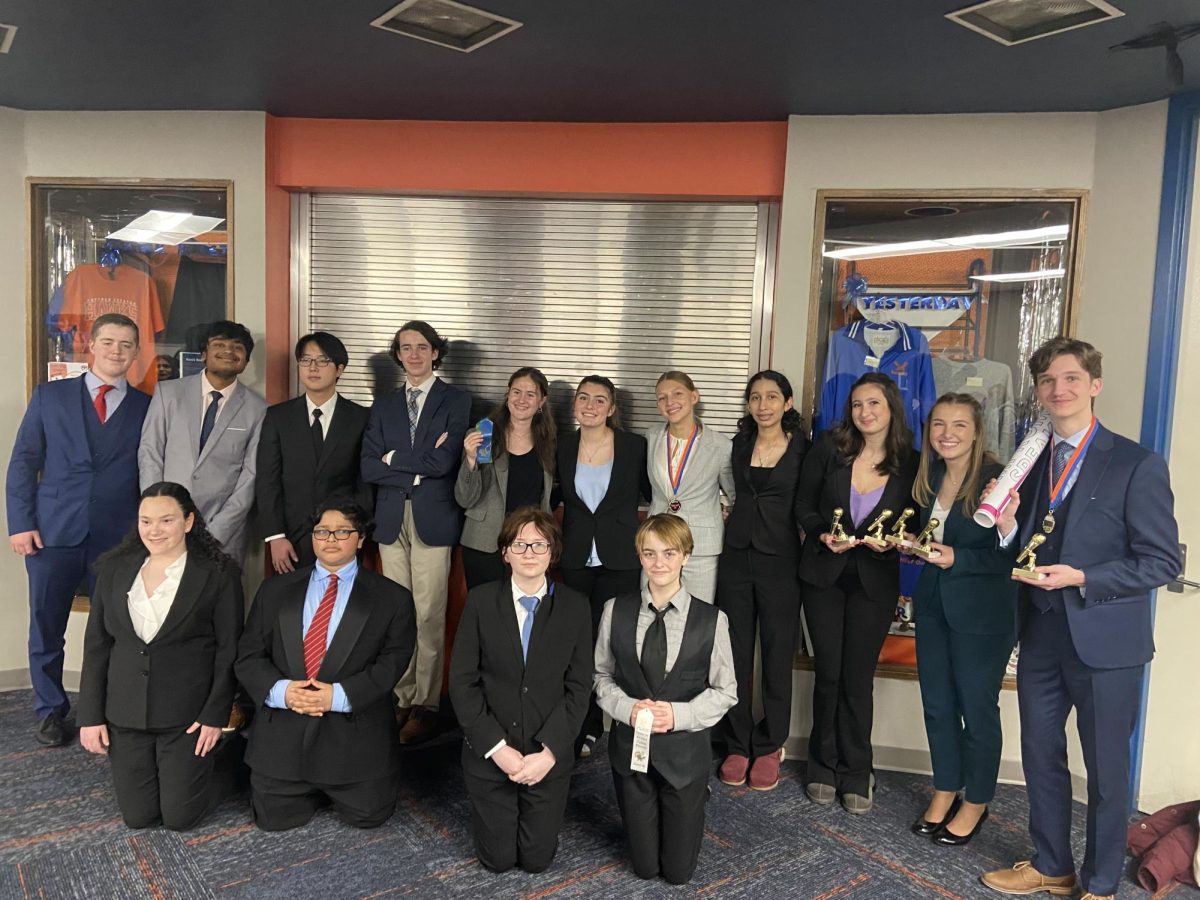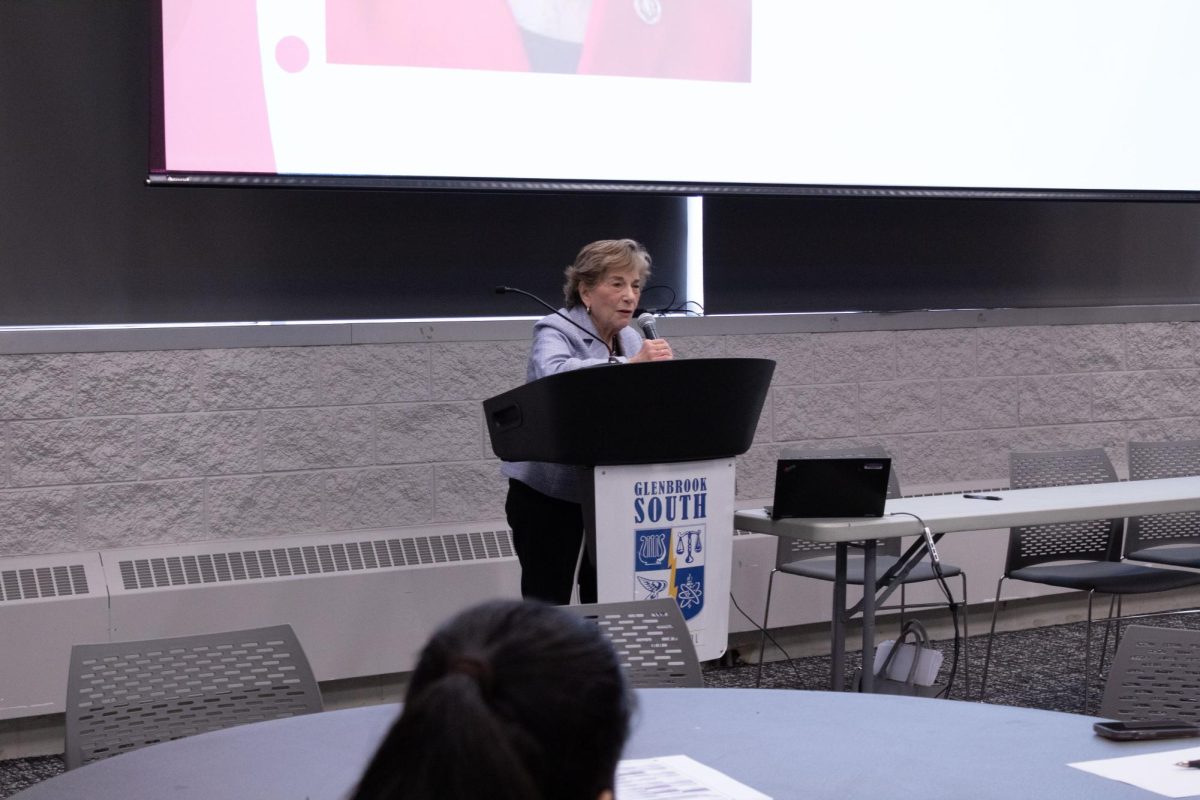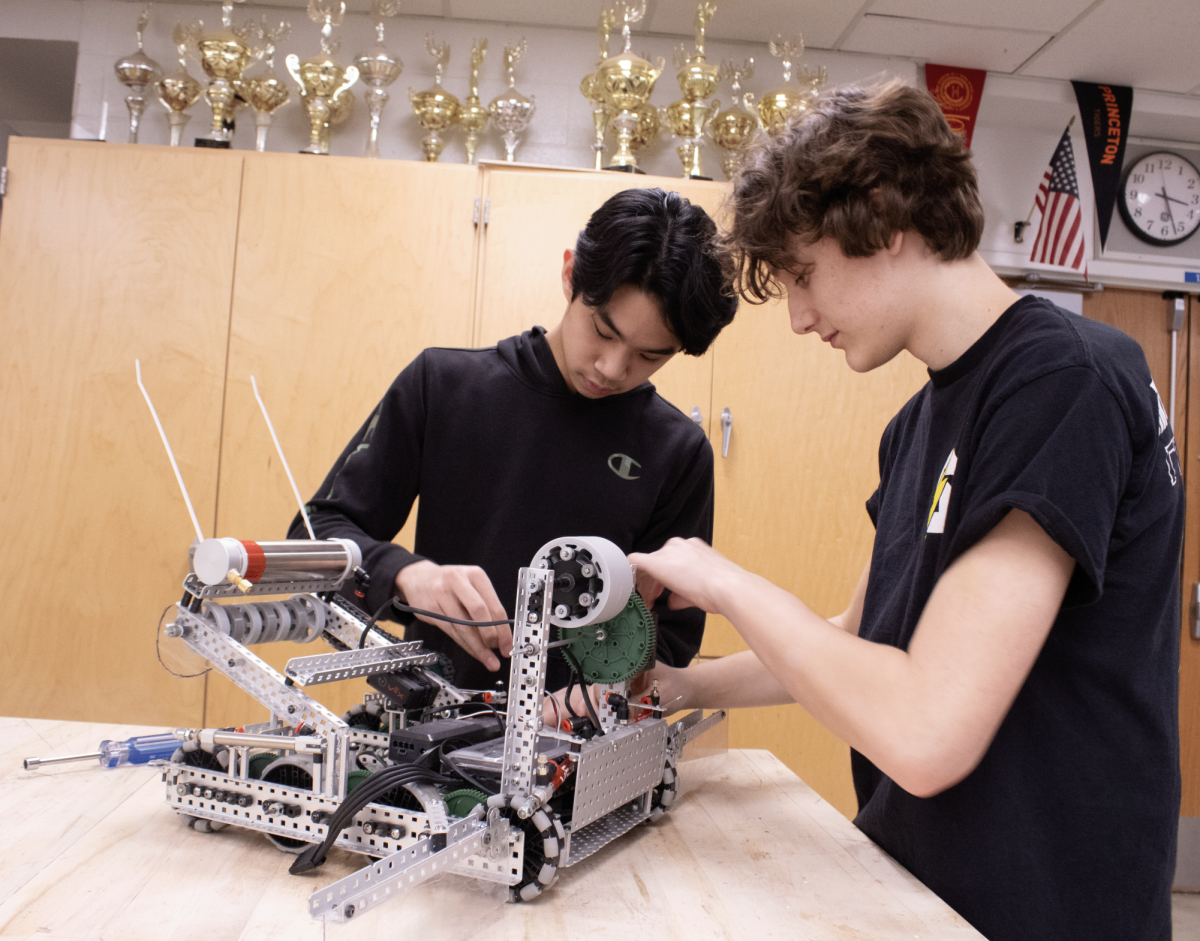Students from Chicago Public Schools (CPS) walked out of PSAE testing April 24, in protest of the use of PSAE and other standardized testing to measure student achievement.
The PSAE testing consists of two days; the first day was an ACT college readiness assessment, and the second consisted of a Workkeys test, which evaluates “skills that employers feel are critical to job success,” according to act.org. The protest was against the use of ranking schools because of these standardized tests, according to Angelique Roberts, Lane Tech High School junior, and it occurred on the second day of the PSAE testing.
Around 100 students were picked up at their schools and then bussed to CPS headquarters where they were joined by about 200 fellow activists, according to Roberts.
From CPS headquarters, the students walked to Banneker Elementary School, one of the 50 schools that the CPS Board of Education intends to close due to its “failing” status from the Board of Education.
Roberts says that the goal of the protests are to get a moratorium on the school closings, along with getting an elected school board. The news of the closings was unexpected, as CPS is supposed to release 10 year plans concerning major changes like school closing, but just announced these specific closings this year, according to Roberts.
Roberts is a part of the organization Chicago Students Organizing to Save Our Schools (CSOSOS). The group of protesters received legal help from the National Lawyer’s Guild, an association that gives free legal advice to protesters. Through representatives from National Lawyer’s Guild they discovered that as long as the students left the schools without entering they wouldn’t face severe school punishment, in comparison to walking out of classrooms during the test.
The Lane Tech administration was notified in advance of the protests and the students were encouraged by school administration to take the test, according to Roberts.
“Our school administration…they’ve been pretty cool about [previous protests]—they’re familiar with activism and [teachers] usually support these sort of endeavors,” Roberts said.
Students who did “walk out” were able to make up the test May 8, the state’s designated makeup date.
The CPS Board responded in a similar fashion to the administration, encouraging kids to attend the test and stressing its importance for student’s future, according to the Chicago Tribune.
Principal Dr. Brian Wegley, believes that student protests similar to those in the CPS are very unlikely in District 225.
“Anytime you have a change in a school, there is a lot of an emotion with that, whether or not it’s right or wrong,” Wegley said. “[Closing the schools] could very well be the right thing for the [CPS] district, but it’s still a very painful thing that students have to use their absolute right to demonstrate their feelings.”
While South students won’t be affected by the closings, South students did take the PSAE and the school will be ranked. Junior Nick Moses took the test on the test date, but is against the state’s use of the scores to rank students and schools.
“While standardized tests are one tool that can be used to judge [students and schools], by no means should it be the defining factor because not everybody is smart in the same way,” Moses said.
According to Roberts, most CPS students agree with Moses and don’t view the ACT/Workkeys as correct methods or accurate measurements of ability.
“The Workkeys test is for readiness,” Roberts said. “It’s just like mind-numbingly boring… [and] It’s a further way to marginalize students and [i]s a justification for closing some schools… [W]hat’s troubling about what we’ve been seeing recently for testing [is] that it’s going to encourage teachers to teach towards the test, rather than teaching the actual class.”
Wegley sees a similar problem with the ranking system and teaching tests, but believes that the tests are important to measure capability.
“Many of the students…from the schools who participated in this [demonstration]…said they felt that they were personally harmed by these tests, which was surprising to me,” Wegley noted. “Students said, in an article I read that ‘I was reclassified as a sophomore right before the test. That’s wrong and that’s harmful to me’- which I totally agree with.”
Schools reclassify students as a lower grade level to decrease the number of students who qualify to take the test and boost the assessment of a school’s ability to prepare its students when the said school hasn’t actually improved, according to Wegley.
“That is a practice that several schools have instituted to make sure that you have the content to take that test,” Wegley said. “I think that is ethically wrong. It is our job as a school to make sure that, by the time you’re a junior, to get you to a certain spot in your development curricularly and academically. If we haven’t put you there, then we need to pay the price for that.”
Wegley believes that while reclassifying could be a problem elsewhere, it has been avoided in District 225.
“That is something that our district would never do,” Wegley said. “Ethically, we would stand against that because our goal is to have our students succeed through high school, graduate, and get them to the level they need to be at to be successful.”
Moses thinks it’s important for students at South to recognize that there are certain elements which separate the quality of education at South from other school districts that prevent altercations like the ones at some CPS schools.
“Schools that are in more wealthy areas have a lot more funding, and therefore give kids that already come from places of privilege way more opportunities than kids who come from a lot less privilege,” Moses said.
Students have recently protested other issues like CPS’s April decision to ban the graphic novel Persepolis as well as Lincoln Park High Schools’ decision to fire four teachers after initially indicating that no teachers would lose their jobs in a curriculum overhaul.
Despite the hard work it will take to sustain the protests, students are hopeful that activism will continue and that a better system will eventually be implemented, according to Roberts.
“It was really awesome to see that it’s not one demographic that’s fighting for this – it’s a movement that’s geared toward all of us,” Roberts said. “I think this movement has legs.”













